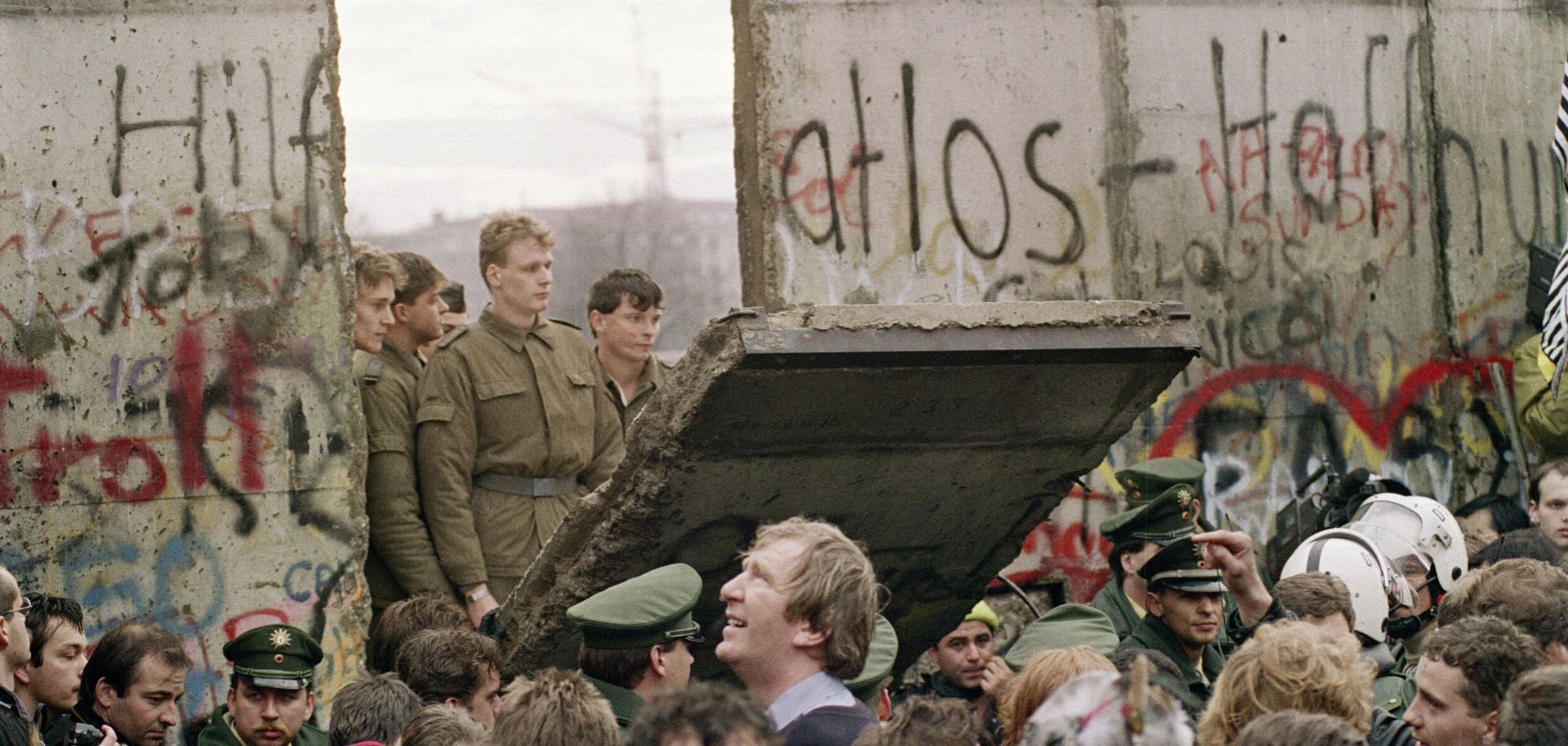ASSESSMENTS
Germany, Then and Now: A Visual Anthology
Sep 24, 2017 | 13:10 GMT

West Berliners crowd in front of the Berlin Wall on Nov. 11, 1989, as they watch East German border guards demolish a section of it. Reunited, Germany threatened France's ascendancy in Europe.
(GERARD MALIE/AFP/Getty Images)
Editor's Note
For the past two centuries, Germany has been at the center of European geopolitics. Located at the heart of the Continent, the country was a key participant in the successive wars that shaped Europe between 1870 and 1945. In the decades that followed, it retained its seemingly inevitable role as a political and ideological battleground throughout the Cold War. After the Berlin Wall fell in 1989, a strong, unified and democratic Germany rose from the rubble to become the dominant political and economic force within the European Union. To this day, it remains one of the world's largest economic engines, pumping massive amounts of exports into the global marketplace.
But the next German government to emerge from the country's Sept. 24 elections will have to grapple with several weighty issues. The European Union is slowly emerging from a decade of crisis, and member states are starting to look for ways to build the bloc's resilience through reform. As a Continental leader, Germany will be front and center in those negotiations, saddling Berlin with the unenviable task of having to balance between its domestic interests and its need to keep Europe united.
Proceed to sign up
Register NowAlready have an account?
Sign In